wikiHow is a “wiki,” similar to Wikipedia, which means that many of our articles are co-written by multiple authors. To create this article, 24 people, some anonymous, worked to edit and improve it over time.
There are 65 references cited in this article, which can be found at the bottom of the page.
This article has been viewed 39,569 times.
Learn more...
"Anti-vaxxer" is a slang, often derogatory term for people who oppose vaccinations. It can be upsetting to encounter an anti-vaxxer, especially if you are afraid they are putting other people at risk. Getting angry or starting an intellectual debate is unlikely to work, even if you are right. Here is how to handle an anti-vaxxer.
Steps
Understanding Anti-Vaxxers
-
1Recognize that some vaccine-hesitant people are just scared or confused. They may not have accurate information, and they might have been told terrifying things that made them worry. These people often need empathy and reassurance, not scorn.
- For example, you could say "I know that there's a lot of conflicting information, including some really scary stuff. That can make it hard to know what's real, and how to keep yourself and your children safe."
-
2Keep in mind that many anti-vaxxers are concerned, misinformed parents. Some parents, especially new ones, are deeply concerned about health risks, and want to do whatever is possible to protect their children.[1] Anti-vaccination rhetoric may prey on those fears.Advertisement
-
3Ask if they'd like to learn more about vaccines. Most anti-vaxxers do like research, and may be open to new ideas. Ask if they'd like new information, and see how they respond.
- If they do want to learn, help them find reliable sources, such as peer-reviewed journals. Give them time to read and reflect. If they do read peer-reviewed research, they might like to talk about it with you.
- Some anti-vaxxers are less open-minded than others. If they shut down when told anything that contradicts what they already believe, assume that constructive conversation is impossible.
-
4Recognize that many anti-vaxxers are often concerned with the ideals of purity and freedom. They want to keep themselves and their children exposed to only "pure" and natural things, and don't want to be forced into being vaccinated or vaccinating their children if they don't want to. Thus, you can appeal to these same values to encourage them to see things differently. [2] [3]
- Purity: Discuss how vaccines harness the natural immune system (making vaccines sound more "pure"). Show how disgusting and awful vaccine-preventable diseases can be. Vaccines help people naturally avoid this fate, whatever their age.
- Freedom: Talk about how vaccines can help people be free to live their lives, without fear of deadly disease or limitations (like lockdowns, being unable to travel, or children needing to be homeschooled) imposed by lack of vaccination. Vaccinated children are able to explore the world around them and experience childhood without lack of vaccination holding them back.
Using Logic
You can try a logical argument, although it's unlikely to work.[4] Only try using logic if someone seems actually interested in a debate.
-
1Ask questions to encourage logical thinking. Sometimes, questions will encourage a person to think more deeply about their beliefs, and question the logic of what they've been told. Even if a person makes excuses right now, they may continue to think about it later on.
- If vaccines cause autism, and most people in the Western world are vaccinated, then why are about 98% of people non-autistic? Also, why do unvaccinated autistic people exist?[5]
- If all vaccines are bad, then why do millions of people get yearly flu vaccines without problems?
- If vaccines are unsafe, then why are they recommended for vulnerable groups such as babies, the elderly and the immunocompromised?
-
2Point out that vaccines are safer than the diseases they prevent. Side effects from vaccines do happen, but for most people they are safer than the potential complications from polio or measles.
- The most common side effects are swelling and a low-grade fever as the body learns to fight off the disease.
- Doctors are usually prepared for the more serious side effects.
- There are very few people who have severe side effects. On average, only one patient out of millions who receive a vaccine will have a severe reaction.[6] [7]
-
3Dismiss claims that vaccines aren't tested. Vaccines are tested for many years before they go out to the public.[8] [9] Initially, vaccines are tested on lab-grown cells; once they meet very strict safety standards, medical professionals can begin administering them to people in small clinical trials and monitoring their reactions. It can take ten, fifteen, or even twenty years for a vaccine to be introduced to the public, and they're monitored extensively even after clinical trials have ended.[10] [11]
- Point out that when vaccines are first being introduced, they do undergo randomized clinical trials if an alternative doesn't already exist. This can be seen with both older vaccines, like polio, and newer vaccines, like the HPV vaccine.
- Explain that if a vaccine already exists, it's unethical to deny it to people by replacing it with a placebo.[12] [13]
- Vaccines have been in regular use for over 50 years, and no long-term risk factors have been identified.[14]
- COVID-19 vaccines, including Pfizer and Moderna, underwent rigorous testing before they were made available to the wider public under emergency use authorizations.
-
4Debunk the autism rumor. A long time ago, a surgeon named Andrew Wakefield published a small case study in The Lancet, a prestigious medical journal. The study summarized that vaccines were increasing the rates of autism in children. This study has since been completely discredited. [15] A lot of anti-vaxxers will refer to this study when defending their beliefs. What they conveniently omit is the fact that this doctor was struck from the medical register in disgrace for unethical behavior, misconduct and fraud. Every independent study since then has found no correlation.
- Andrew Wakefield's study was debunked. In addition to the tiny sample size, it was found that he was faking his data, and hiding the fact that he was receiving large payments to say that vaccines caused autism.[16] He also wanted to patent his own MMR vaccine, and thus benefited from smearing the existing one.
- Current evidence suggests that autism is inborn and genetic, with researchers now identifying signs as early as the 2nd trimester.[17] Increasing rates of autism diagnoses are caused by better and broader diagnosis, while the prevalence of autism itself is actually very stable.[18] [19] [20] [21] Parents can't control whether their child is autistic. Unvaccinated children can still be autistic.[22] [23]
- Even if there was a correlation between vaccines and autism, it's better to have an autistic child than it is to watch your child slowly die from whooping cough.[24] [25] [26] [27] Correlation does not imply causation.
-
5Dispute claims vaccines cause cancer. Some anti-vaccination websites have begun claiming that vaccines will give children cancer. However, cancer rates are fairly stable (not increasing), with cancer death rates decreasing due to better treatment.[28] Certain vaccines (like the HPV vaccine) can also reduce your risk of cancer, by protecting you against viruses that cause cancer.[29]
- Common causes of cancer include smoking, tobacco, alcohol abuse, heavy sun exposure without sunscreen, infections, and genetic risk factors.[30]
- Long-term exposure to formaldehyde (usually inhaled) can increase cancer risk.[31] But that doesn't mean that a tiny amount of formaldehyde in a vaccine will kill you. Vaccines only carry a tiny amount, far less than is naturally present in the body.[32]
-
6Refute the claim that vaccines cause SIDS. Although this argument is less common, some anti-vaxxers will claim that vaccines can cause SIDS, or sudden infant death syndrome. However, multiple studies in the 1980s found that infants who had been given the DTP vaccinations were actually less likely to die of SIDS than unvaccinated infants.[33]
- Unfortunately, doctors aren't quite sure what causes SIDS, which is why it's an easy argument for anti-vaxxers to make.
-
7Combat the "Humans die when they ingest it, so it's bad for you" argument. Some anti-vaxxers will tell you that since you can't put the vaccine medicine on a spoon, drink it, and digest it without dying, vaccines are unsafe. Vaccines are supposed to enter the bloodstream, not the stomach.
- Large amounts of any substance, even water, are bad for you. Vaccines are designed to contain safe amounts of everything.
- Lots of sinister-sounding substances aren't as scary as they seem. For example, vaccines contain formaldehyde, which can be used to preserve dead tissue... but is also naturally produced by the body.[34]
- Vaccine formulas can be redeveloped to accommodate health concerns. For instance, thimerosal is no longer added to most vaccines, and the ones that do contain thimerosal have only about 25 micrograms of it (which is equal or less than the amount of mercury in canned tuna).[35] [36]
- Some anti-vaxxers argue that injecting bypasses the way most substances enter the body, and are concerned that once it is injected, there is no way to turn off a potential extreme inflammatory response. However, these reactions are extremely rare, and even if they did happen, a doctor would be able to find the cause and treat it.
- Products that are found to be safe by the FDA can cause poisoning if misused. If you see someone suffering from overdose or symptoms of poisoning, call poison control.
-
8Deal with the anti-government conspiracy theorists. Some people who believe vaccines are bad, think so because "they're from the government, so they are not safe!" This is just paranoia. Governments are trying to keep people safe and allowing hospitals and clinics to use vaccines is just a step-in order to make sure that an outbreak of a major disease doesn't affect everybody.
- Ask what motive the government could have for making people sick or disabled. Why would they do that?
- Break down the argument of "sick people make them money" by pointing out that while non-disabling illness does require people to pay money, it also costs the government money to support sick or disabled people (e.g. long-term disability payments).
- If a sizable portion of the population dies or is permanently disabled from vaccine-preventable diseases, that leaves fewer people who can make money, help maintain the country, or take over someone else's governmental role should they die or retire.
-
9Discuss the logic of a Big Pharma conspiracy. Conspiracies are very hard work to maintain, especially on such a large scale.
- Ask why doctors would be allowed to break the Hippocratic Oath in this case, when they are strictly held to it otherwise. What makes vaccines special?
- Doctors don't usually make profits on vaccines, and may even lose money. But anti-vaccination advocates can make big profits on "miracle cures," "health supplements," and books.[37] The FDA strictly regulates products for safety and efficacy. If you notice an advertised product that has not been tested for safety or approved for treatment being marketed as such, then you should submit a complaint to the FDA and/or FTC. False advertising can result in defamation lawsuits as well as civil penalties like fines and court fees.
-
10Argue against the “My child got along just fine without vaccines!" type statements. Herd immunity is protecting the anti-vaxxers and their children—if more people are immune, the disease cannot spread. But the more the number of unvaccinated people rises, the higher the chances are that a dangerous disease breaks out.
- If their child hasn't gotten sick yet, that child is lucky. There are cases of unvaccinated children who face serious complications, or even die.
- Just because things are fine so far doesn't mean that a child is safe. It wouldn't be logical to say "my child doesn't wear seat belts and hasn't died in a car accident yet, so it's good to not use seat belts," in the same way it isn't logical to say "my unvaccinated child hasn't died of polio yet, so not vaccinating is safe."
- The parents are also endangering vulnerable people, such as infants, people with allergies to vaccines, and immunocompromised people (such as cancer patients) who aren't able to get vaccines. Those people could get very sick or die if they come into contact with someone who has a vaccine-preventable disease.
-
11Rebut the argument that a few vaccinated people getting the disease means that vaccines don't work. It is possible for some vaccinated people to still contract the disease they were vaccinated against, just as it is still possible to be injured in a car accident if you are wearing seatbelts. However, this is because some people's immune systems don't fully respond to the vaccine, and does not mean all vaccines are ineffective.[38] Vaccines sharply reduce the chance that someone could get the disease. Between 85 to 95 percent of people respond to childhood vaccines, meaning the people who don't respond to the vaccine are in the minority.[39] [40] And partial protection works better than no protection.
-
12Dispel claims of "vaccine shedding". Some people will argue that after a vaccination, the vaccine can be "shed" through bodily functions (like sneezing or using the bathroom), and put other people at risk, so therefore vaccination isn't safe. However, research has shown that only vaccines with live viruses in them can be transmitted, and transmission does not mean an unvaccinated or immunocompromised person will contract the disease.[43] Documented cases of "shedding" are extremely rare.
- The only vaccines that can "shed" are rotavirus (which is transmitted through feces and can be prevented with good hygiene), varicella or zoster (which is only transmittable if the vaccinated person develops "breakthrough" chickenpox), yellow fever (which is transmitted via breastfeeding and blood transfusions), and the oral polio vaccine (which is not used in many countries, in favor of the injection).[44] [45] [46] MMR can be transmitted, but cannot be contracted.[47]
- Medical professionals recommend that those who live with an immunocompromised person get vaccinated to reduce the risk of the person contracting the disease.[48]
-
13Point out that VAERS is not necessarily reliable (in the US). Some anti-vaxxers will argue that the Vaccine Adverse Event Reporting System (VAERS) has paid out money to those who had adverse reactions to vaccines. However, reports on VAERS can be submitted by anyone. They can be coincidental or even falsified, haven't necessarily been studied, and a report doesn't mean the vaccine caused the reaction.[49] [50] [51] In addition, VAERS does not compensate anyone who files a claim; the Vaccine Injury Compensation Program (VICP) is the only US organization that will compensate those with severe reactions to vaccines, and the requirements for filing a claim are strict.[52]
- VAERS has been useful to determine potential reactions to a vaccine, and vaccines with multiple similar reactions can trigger a re-review of the vaccine. However, VAERS will accept any report, even if it seems outlandish (like claiming a vaccine caused a suicide). One person reported to VAERS that receiving a vaccination had turned him into the Hulk.[53] [54]
- Many severe reactions or deaths reported on the VAERS website have been linked to other, non-vaccine causes.[55] Correlation is not causation.
- Medical professionals are urged to file any notable health issues to VAERS if the issue occurred post-vaccination, even if there's little or no evidence linking the reaction to the vaccine.[56]
- To file a petition with VICP, the person who received the vaccine must have either experienced severe side effects for over six months, have been hospitalized or required surgical intervention, or have died as a result of the vaccine (all of which are extremely rare).[57] If the vaccine has no record of causing the adverse effect that the recipient experienced, there must be medical evidence that the vaccine caused the reaction, and it wasn't coincidence.[58] Whether or not the petitioner receives compensation is determined in court.[59]
- Between 1988 and January 2020, out of the billions of vaccines given, only over 21,000 petitions were submitted. Only about 7,000 (38%) of people who have filed a claim with VICP have won compensation, and 80% of those were compensated by a settlement rather than a court decision. The other 14,000 cases have been dismissed.[60]
- People cannot sue the creators or manufacturers of vaccines because repeated or multiple lawsuits against these manufacturers can cause shortages of vaccines, which puts other people at risk.[61]
-
14Remind them that healthy habits won't protect them. Some parents wrongly assume that their privileged background, or healthy lifestyles, will shield them from vaccine-preventable infections.[62] However, a healthy lifestyle does not prevent someone from contracting vaccine-preventable illnesses.
- If good hygiene and healthy habits were enough to protect against vaccine-preventable disease, the disease rates would have declined decades prior. However, disease has only sharply declined after the introduction of vaccines. When countries have relaxed their vaccination requirements without the disease in question being eradicated, the disease almost immediately comes back.[63]
- Point out that the immune system reacts much faster to a disease when it's already been exposed to even a tiny bit of it. With a vaccine, the immune system recognizes the disease and can attack it quickly; without it, the immune system doesn't respond as quickly, which can result in the disease causing serious harm before it's fought off.[64]
- Explain that vaccination is like wearing seat belts in a car. You don't get into a car expecting to get into a crash, but if you do get into one, the seat belt protects you from much more injury than if you hadn't been wearing it. The same applies to vaccines.[65] [66]
Making Emotional Appeals
Most people are convinced not by logic, but by emotion.
-
1Agree that it can be hard to find accurate information about vaccines. There is a lot of fearmongering, misinformation, and conspiracy theories about vaccines. This can scare people. Tell them that it's okay to feel worried or concerned. This helps them feel understood, and helps them trust you. They may be more open to hearing other perspectives once they're put at ease.
-
2Be gentle with understandable fears about vaccine injuries. Many of these stories sound scary. Of course, many of these are stories of problems that aren't caused by vaccines or are outright lies.[67] But they're still scary and confusing,[68] and it's important not to sweep those feelings under the rug. Be willing to validate their feelings, even if you suspect that the things they're afraid of are overblown.
- Ignoring or steamrolling someone's feelings will not make those feelings go away. But making space for genuine discussion can help.
- To put things in perspective, there are about two injury claims per million doses.[69] That's 0.0002%. It's akin to saying "I won't go outside this year because I don't want to risk being struck by lightning." The risk is about the same.[70]
-
3Show them the dangers of vaccine-preventable diseases. Due to the success of vaccines, most people no longer have any idea what vaccine-preventable diseases are really like. Try showing them photos or videos of children suffering from diseases like whooping cough, measles, and polio. Let them read details of children who got sick.[71] Explain how the diseases can cause serious complications like brain damage, infertility, and death.
- Say "This is what can happen to your child if they don't get vaccinated. I want your child to be safe, and that's why I'm showing you this. It's not too late to get them immunized, to help protect them." Understand that some anti-vaxxers know someone who has suffered severe side effects of vaccines that are just as bad as the effects you are describing. You might ask whether that is the case before proceeding.
-
4Explain the lifelong effects that vaccine-preventable diseases can have. Vaccine-preventable diseases can have complications that affect the child for the rest of their lives. Even if they survive, their body may never be the same. Unvaccinated people who contract illnesses may live with lifelong problems and conditions like:[72] [73]
- Scarred lungs
- Scarred skin
- Bad teeth
- Partial or complete deafness
- Blindness
- Brain damage
- Paralysis
- Infertility
-
5Encourage them to read personal accounts of vaccine-preventable diseases. Parents have written about how it felt for their children to get vaccine-preventable diseases, and how frightening it was.
-
6Explain how vaccines harness people's natural immune systems. Some anti-vaxxers are deeply concerned with whether something is "natural." It may help to explain how vaccines strengthen a child's natural immune system, introducing the child to a weakened form of the disease so that the child will be ready if they encounter the real thing.
-
7Talk about how the choice not to vaccinate puts other people at risk. Babies, people with allergies to vaccine ingredients (such as eggs), immunocompromised people, and the elderly are all at risk of vaccine-preventable diseases. Choosing not to vaccinate is choosing to put those people at risk too, because diseases can spread from the child to a less fortunate person.[74]
- Pregnant people, if exposed to rubella, may suffer a miscarriage, or have their babies born with severe health problems.[75]
- Diseases do spread. There have been cases of unvaccinated babies needing to be quarantined and schools needing to be temporarily closed due to life-threatening outbreaks of vaccine-preventable diseases.[76]
-
8Talk about how rhetoric about autism can be deeply hurtful to autistic people. Autistic people are people, and they have feelings. It can hurt them to hear how they are "broken" or "damaged," with "soulless eyes."[77] Research shows that autistic people suffer from lack of acceptance in the world.[78] Encourage the person to empathize with autistic people, and work on helping them feel loved and wanted.
- Ask "How do you think an autistic person would feel if they heard that? What might it be like, to know that people would risk their children's lives rather than possibly having their child turn out like you?"
- If they say that autistic people can't hear them, ask "How do you know?" Autism is lifelong, and not always obvious to others. (For all they know, you could be autistic.) Autistic people do hear the things other people say about them.[79]
- There are also parents of autistic children who wish that people would stop speaking so negatively about their children, because it is hurtful and untrue.[80] [81]
-
9Encourage them to help their child have a better future. In addition to being many times more likely to develop serious illnesses and need hospitalization,[82] unvaccinated children have fewer opportunities.
- Lack of vaccinations can limit your child's future ability to travel abroad, attend the schools they want to attend, attend day cares and play groups, and enjoy other opportunities.[83]
- Disease outbreaks can have a serious impact on unvaccinated kids. Experts recommend that unvaccinated children should be kept home for days or weeks during an outbreak, even if it means missing school.[84] If a child catches a vaccine-preventable disease, they may need to be quarantined away from everyone else, which can be frightening (especially to young children).
Setting Boundaries
-
1Know that you have the right to not allow unvaccinated people to spend time with you or your own children. Especially if your child is immunocompromised or a newborn, you may be worried about their health and safety. You're allowed to say "only vaccinated people may visit with my family."
- If the person has a tendency to lie, you can ask for proof of immunization.
- It can be hard to not let grandparents, aunts or uncles, cousins, et cetera to not meet their new baby relative. But it can also be hard to watch your child suffer from a vaccine-preventable, life-threatening disease like whooping cough. Experts recommend keeping infants out of contact with unvaccinated relatives, until the infant has gotten all their shots.
-
2Change the subject if this is a frequent argument. If you are forced to see this person often (such as during a family reunion), it may be in everyone's best interests to avoid the subject and keep things peaceful. Here are some example things you could say:
- "Yes, okay. Anyway, can you believe how much it's raining?"
- "I don't want to talk about this."
- "I'm not interested in arguing about this with you."
- "If you keep bothering me about my decisions, I am going to leave."
-
3Limit contact with a toxic person. If someone is rude to you, acts aggressively, or steamrolls your personal boundaries, then assume that they aren't going to change. You don't have to spend time with someone who makes you feel bad.
Warnings
- Unfortunately, people who are outspoken about vaccines can be victims of serious online abuse. Anti-vaxxers en masse have engaged in name-calling, threats of violence, and death threats, even targeting grieving mothers whose children died of vaccine-preventable diseases.[85] [86] This type of cruelty isn't fair, but it does happen.⧼thumbs_response⧽
References
- ↑ https://www.thedailybeast.com/i-didnt-vaccinate-my-childand-i-regret-it
- ↑ https://www.vox.com/2017/12/5/16733744/vaccines-parents-anti-vax
- ↑ https://mashable.com/article/anti-vaccines-facebook-study/#FIVKMwf2qaqn
- ↑ http://www.thinkingautismguide.com/2014/07/busting-anti-vaccine-myths-while.html
- ↑ https://www.verywellhealth.com/unvaccinated-children-with-autism-2633214
- ↑ https://www.who.int/news-room/q-a-detail/vaccines-and-immunization-myths-and-misconceptions
- ↑ https://www.immunize.org/askexperts/precautions-contraindications.asp
- ↑ https://www.cdc.gov/vaccines/parents/why-vaccinate/vaccine-decision.html
- ↑ https://nrvs.info/faqs/vaccine-safety/
- ↑ http://vk.ovg.ox.ac.uk/vaccine-development
- ↑ https://nrvs.info/faqs/vaccine-safety/
- ↑ https://www.ncbi.nlm.nih.gov/pmc/articles/PMC4157320/?report=classic
- ↑ https://apps.who.int/iris/bitstream/handle/10665/94056/9789241506250_eng.pdf;jsessionid=36CB5193177B6E641FB1A90DAE612724?sequence=1
- ↑ https://www.cdc.gov/vaccines/parents/tools/parents-guide/parents-guide-part4.html
- ↑ https://www.publichealth.org/public-awareness/understanding-vaccines/vaccine-myths-debunked/
- ↑ https://harpers.org/archive/2013/01/sentimental-medicine/9/
- ↑ https://www.parents.com/pregnancy/everything-pregnancy/docs-autism-starts-in-the-2nd-trimester-of-pregnancy/
- ↑ https://www.vox.com/the-big-idea/2018/4/28/17295398/cdc-autism-rates-epidemic-diagnosis-vaccines-myth
- ↑ https://medium.com/the-method/there-is-no-autism-epidemic-85974967d1de
- ↑ https://www.ncbi.nlm.nih.gov/pmc/articles/PMC4232964/
- ↑ https://www.kidspot.com.au/parenting/real-life/in-the-news/lets-get-one-thing-straight-autism-is-not-an-epidemic/news-story/13a47b9d5715fcc2cc4838fb2a5e2bf4
- ↑ https://www.verywellhealth.com/unvaccinated-children-with-autism-2633214
- ↑ https://www.voicesforvaccines.org/how-my-daughter-taught-me-that-vaccines-do-not-cause-autism/
- ↑ https://medium.com/the-archipelago/im-autistic-and-believe-me-its-a-lot-better-than-measles-78cb039f4bea
- ↑ https://www.health.com/childhood-vaccines/how-anti-vaccine-movement-hurts-autistic-people
- ↑ https://www.voicesforvaccines.org/annas-voice/
- ↑ https://www.theguardian.com/commentisfree/2018/aug/23/autistic-anti-vaxxers-fear-neurodiversity-far-right
- ↑ https://vaxopedia.org/2018/04/25/can-vaccines-cause-cancer/
- ↑ https://www.cancerresearch.org/join-the-cause/cancer-immunotherapy-month/30-facts/10
- ↑ https://vaxopedia.org/2018/04/25/can-vaccines-cause-cancer/
- ↑ https://vaxopedia.org/2018/04/25/can-vaccines-cause-cancer/
- ↑ https://www.immunizeusa.org/blog/2017/march/09/whats-in-a-vaccine-nothing-to-cause-worry/
- ↑ https://www.who.int/news-room/q-a-detail/vaccines-and-immunization-myths-and-misconceptions
- ↑ https://harpers.org/archive/2013/01/sentimental-medicine/7/
- ↑ https://www.cdc.gov/vaccinesafety/concerns/thimerosal/index.html
- ↑ https://www.fda.gov/vaccines-blood-biologics/safety-availability-biologics/thimerosal-and-vaccines
- ↑ https://www.voicesforvaccines.org/how-my-daughter-taught-me-that-vaccines-do-not-cause-autism/
- ↑ https://www.who.int/news-room/q-a-detail/vaccines-and-immunization-myths-and-misconceptions
- ↑ https://www.who.int/news-room/q-a-detail/vaccines-and-immunization-myths-and-misconceptions
- ↑ https://www.cdc.gov/vaccines/parents/tools/parents-guide/parents-guide-part4.html
- ↑ https://nrvs.info/why-might-you-get-the-disease-even-though-you-are-vaccinated-against-it/
- ↑ https://www.cdc.gov/vaccines/parents/tools/parents-guide/parents-guide-part4.html
- ↑ http://nrvs.info/faqs/can-vaccines-cause-or-spread-diseases/
- ↑ https://www.immunize.org/askexperts/experts_rota.asp
- ↑ https://immunisationhandbook.health.gov.au/vaccination-for-special-risk-groups/vaccination-for-people-who-are-immunocompromised
- ↑ https://www.aafp.org/afp/2014/1101/p664.html
- ↑ https://immunisationhandbook.health.gov.au/vaccination-for-special-risk-groups/vaccination-for-people-who-are-immunocompromised
- ↑ https://immunisationhandbook.health.gov.au/vaccination-for-special-risk-groups/vaccination-for-people-who-are-immunocompromised
- ↑ https://vaers.hhs.gov/data/dataguide.html
- ↑ https://www.skepdoc.info/diving-into-the-vaers-dumpster-fake-news-about-vaccine-injuries/
- ↑ https://www.politifact.com/texas/statements/2017/may/11/bill-zedler/bill-zedler-insists-program-doesnt-collect-wide-ra/
- ↑ https://www.hrsa.gov/vaccine-compensation/eligible/index.html
- ↑ https://www.skepdoc.info/diving-into-the-vaers-dumpster-fake-news-about-vaccine-injuries/
- ↑ https://www.politifact.com/texas/statements/2017/may/11/bill-zedler/bill-zedler-insists-program-doesnt-collect-wide-ra/
- ↑ https://www.skepdoc.info/diving-into-the-vaers-dumpster-fake-news-about-vaccine-injuries/
- ↑ https://vaers.hhs.gov/data.html
- ↑ https://www.hrsa.gov/vaccine-compensation/eligible/index.html
- ↑ https://www.hrsa.gov/vaccine-compensation/covered-vaccines/index.html
- ↑ https://www.hrsa.gov/vaccine-compensation/index.html
- ↑ https://www.hrsa.gov/vaccine-compensation/data/index.html
- ↑ https://www.hrsa.gov/vaccine-compensation/index.html
- ↑ https://harpers.org/archive/2013/01/sentimental-medicine/
- ↑ https://www.who.int/news-room/q-a-detail/vaccines-and-immunization-myths-and-misconceptions
- ↑ https://nrvs.info/why-do-i-need-to-vaccinate-as-well/
- ↑ https://www.cdc.gov/vaccines/parents/why-vaccinate/vaccine-decision.html
- ↑ https://nrvs.info/why-do-i-need-to-vaccinate-as-well/
- ↑ https://www.wired.co.uk/article/covid-vaccine-misinformation-facebook
- ↑ https://vaxopedia.org/2017/11/01/vaccine-injury-stories-that-scare-parents/
- ↑ https://www.nytimes.com/2019/06/18/health/vaccine-injury-claims.html
- ↑ https://www.cdc.gov/disasters/lightning/victimdata.html
- ↑ https://vaxopedia.org/2018/07/22/personal-stories-about-vaccine-preventable-diseases/
- ↑ https://twentytwowords.com/children-of-anti-vaxxers-respond-to-their-parents-philosophy/
- ↑ http://www.euro.who.int/__data/assets/pdf_file/0005/160754/Vaccine-preventable_EN_WHO_WEB.pdf
- ↑ https://www.washingtonpost.com/opinions/why-i-changed-my-mind-about-vaccinating-my-children/2015/02/06/8ccd3076-abd6-11e4-9c91-e9d2f9fde644_story.html?noredirect=on&utm_term=.d80e42a80361
- ↑ https://www.babycenter.com/0_rubella-german-measles-during-pregnancy_9527.bc
- ↑ https://www.theatlantic.com/education/archive/2015/02/schools-may-solve-the-anti-vaccine-parenting-deadlock/385208/
- ↑ https://bellejar.ca/2015/02/05/vaccines-dont-cause-autism-but-thats-not-the-point-stop-being-ableist/
- ↑ https://theconversation.com/autistic-people-arent-really-accepted-and-its-impacting-their-mental-health-86817
- ↑ https://www.cbc.ca/atlanticvoice/2015/04/17/they-can-hear-youand-theyre-hurt/
- ↑ https://www.voicesforvaccines.org/stop-using-my-children-to-scare-parents-out-of-vaccinating/
- ↑ https://www.voicesforvaccines.org/mmr-and-autism-our-story/
- ↑ https://www.scientificamerican.com/article/straight-talk-about-vaccination/
- ↑ https://www.theatlantic.com/education/archive/2015/02/schools-may-solve-the-anti-vaccine-parenting-deadlock/385208/
- ↑ https://www.cdc.gov/vaccines/parents/vaccine-decision/no-vaccination.html
- ↑ https://www.cnn.com/2019/03/19/health/anti-vax-harassment-eprise/index.html
- ↑ https://www.theguardian.com/technology/2019/feb/27/facebook-anti-vaxx-harassment-campaigns-doctors-fight-back
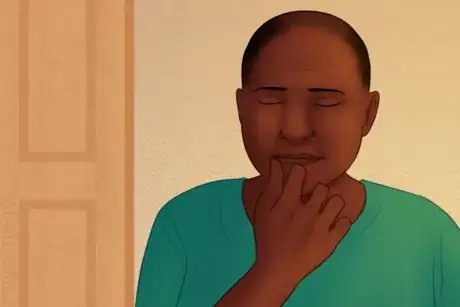


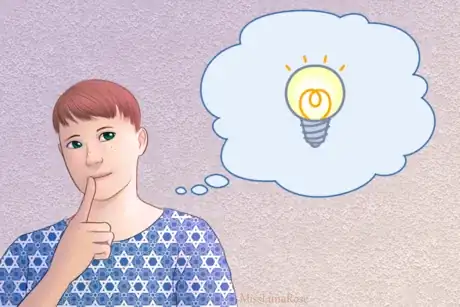
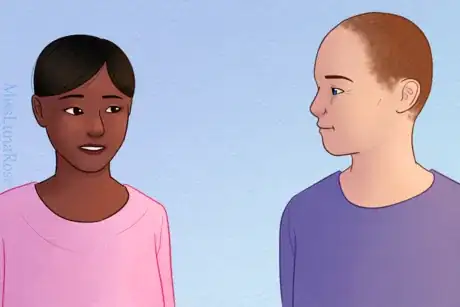
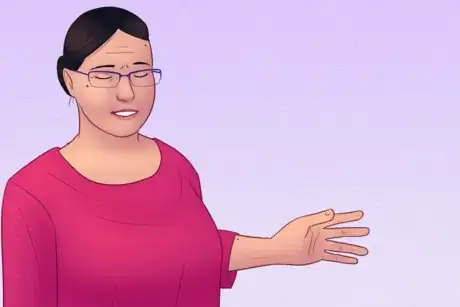


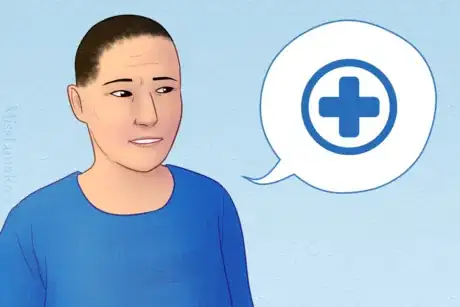

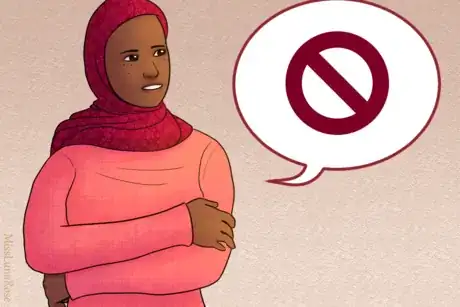


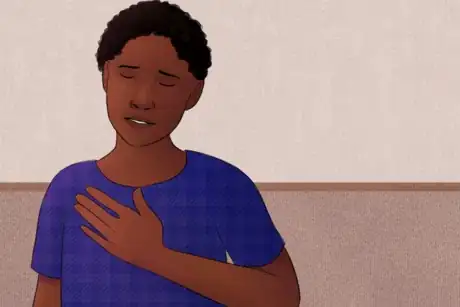
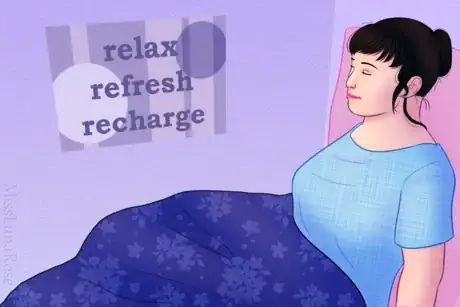
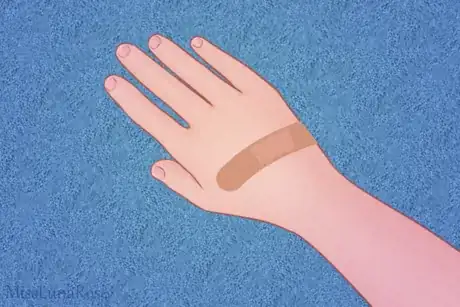

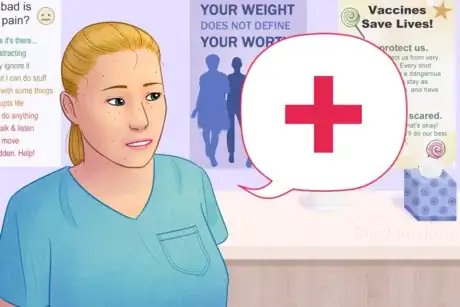

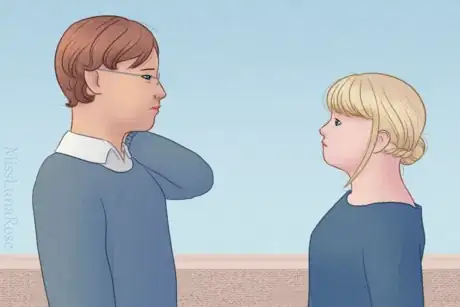
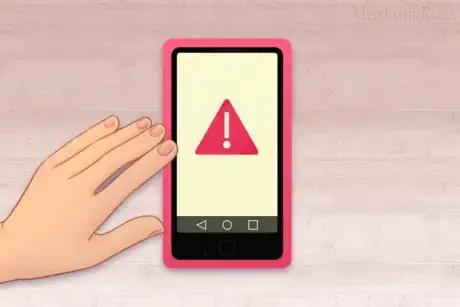

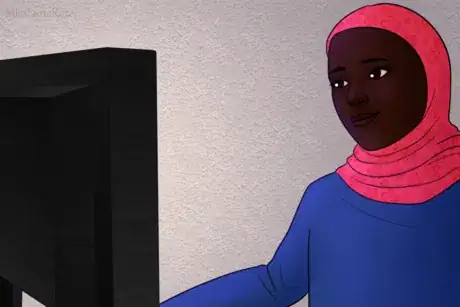
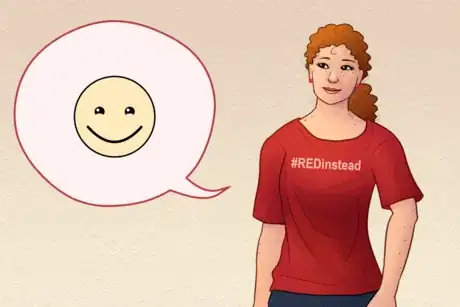
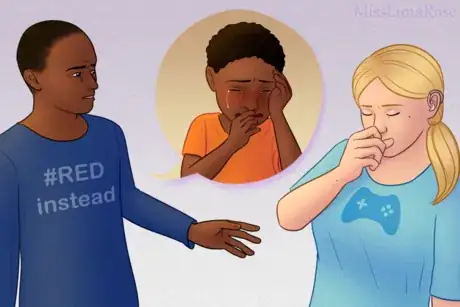
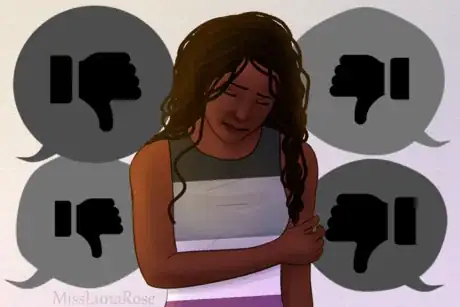
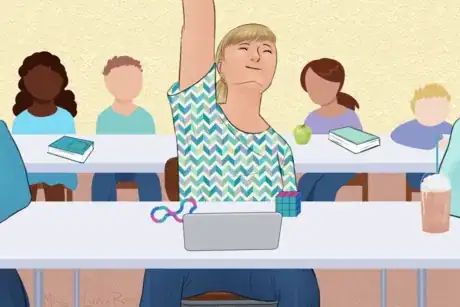
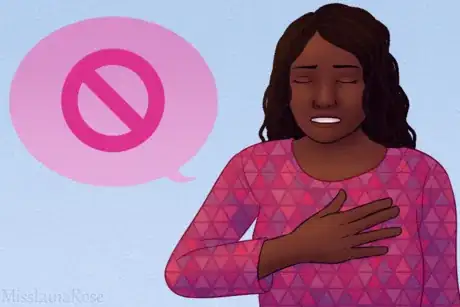
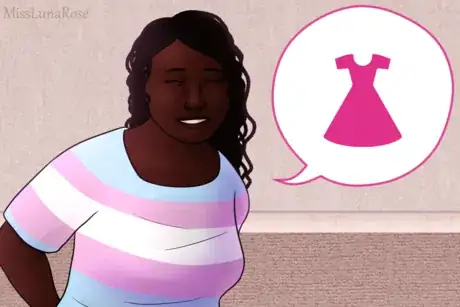
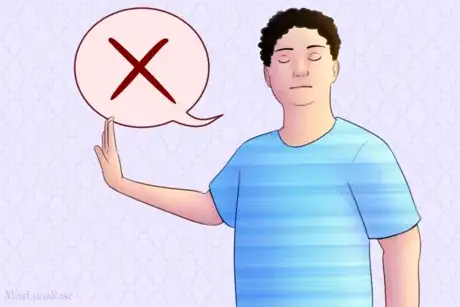

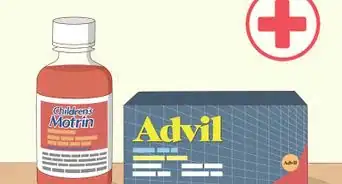

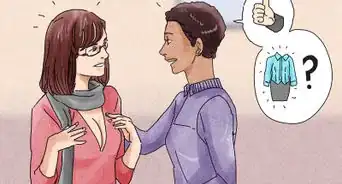
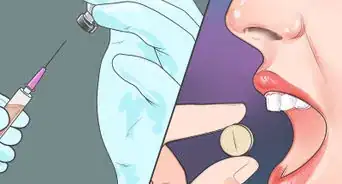
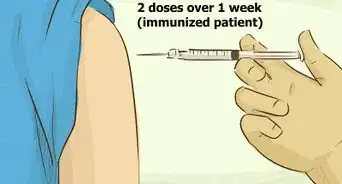

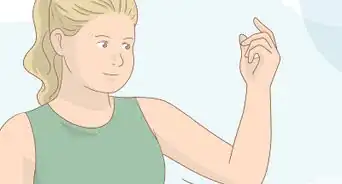
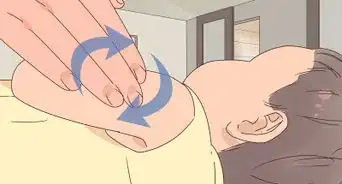


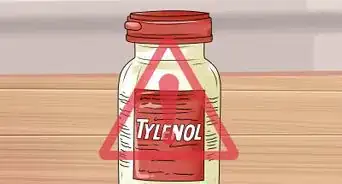














































Medical Disclaimer
The content of this article is not intended to be a substitute for professional medical advice, examination, diagnosis, or treatment. You should always contact your doctor or other qualified healthcare professional before starting, changing, or stopping any kind of health treatment.
Read More...